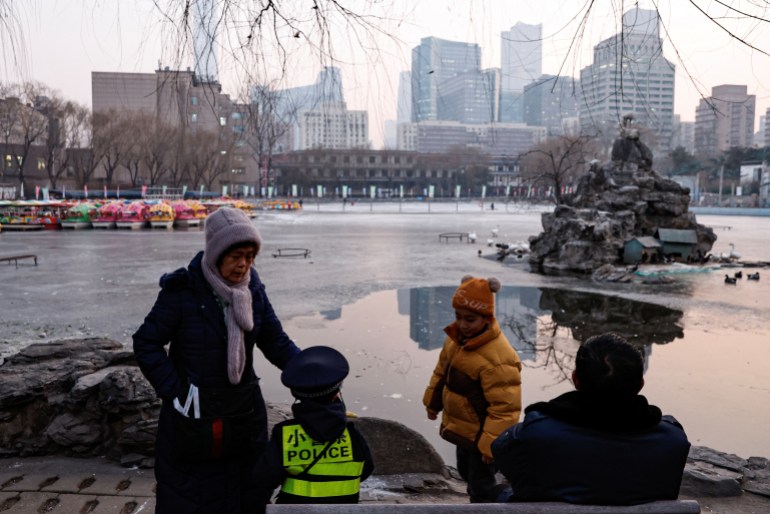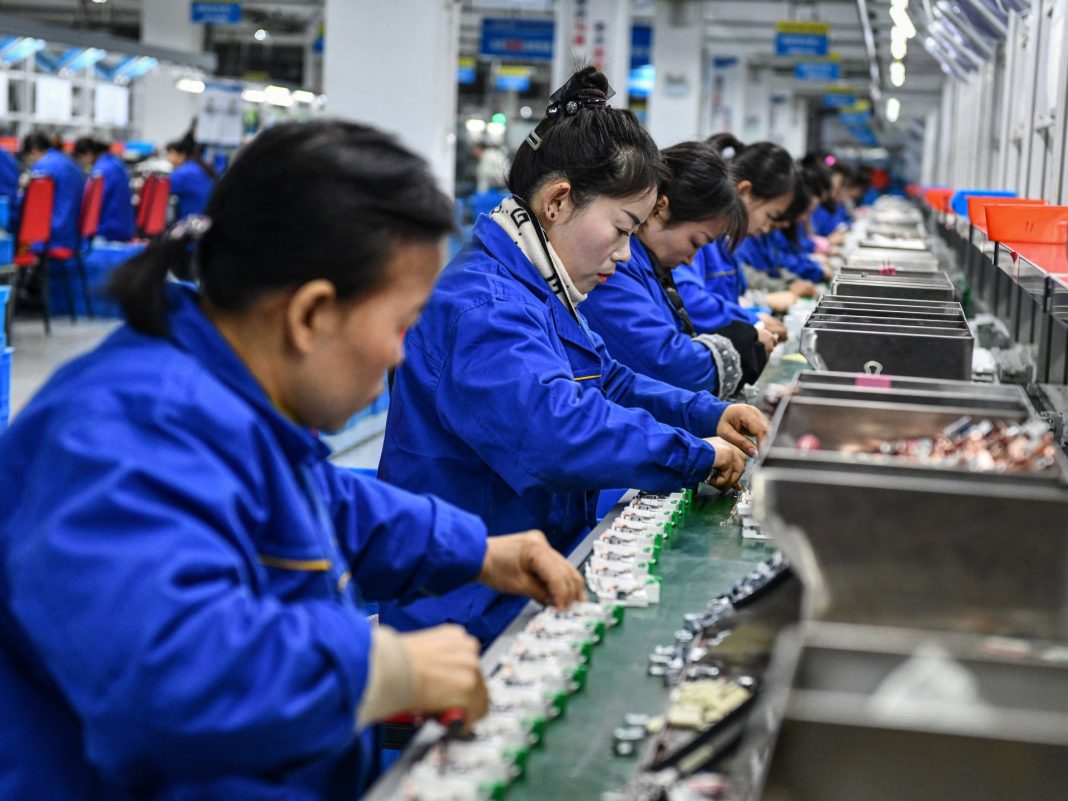Official data shows GDP was 5.2 percent in 2023, hitting a government target, but recovery looks uneven.
China’s economy grew by 5.2 percent in 2023, hitting the government’s official target, but concerns about growth momentum remain amid a protracted property crisis, sluggish consumer and business confidence, and weak global growth.
China’s National Bureau of Statistics said gross domestic product (GDP) in the world’s second-biggest economy also rose by 5.2 percent in the final three months of 2023, compared with the same period last year.
Kang Yi, the bureau’s head, said the expansion had been “hard won” and cautioned that the economy faced a complex external environment and insufficient demand moving into 2024.
In 2022, China’s economy grew by just 3 percent as a result of prolonged COVID-19 regulations linked to its zero-COVID policy.
After lifting the measures at the end of 2022, Beijing set itself a growth target of “around five percent” for last year.
After an initial post-pandemic rebound, the economy has been weighed down by the continuing crisis in the property market where the authorities have been trying to rein in massive debts and speculation, as well as record youth unemployment and a global slowdown.
Exports – historically a key growth lever – fell last year for the first time since 2016, according to figures published by the customs agency on Friday.

Geopolitical tensions with the United States and efforts by some Western nations to reduce dependence on China or diversify their supply chains have also hit growth.
Chinese officials are due to release their growth target for 2024 in March.
‘Not a risk’
China is seeking to lure back international investors who have become increasingly sceptical about the Chinese growth story.
Speaking at the World Economic Forum in the Swiss resort of Davos, Chinese premier Li Qiang said his country had achieved its economic target without resorting to “massive stimulus” and painted a bullish picture of the situation.
He said China had “good and solid fundamentals in its long-term development” and that Beijing would “adhere to its basic national policy of opening up to the outside world”.
Li cast a decision to invest in China as “not a risk but an opportunity”.
But risks abound in the era of Chinese leader Xi Jinping.
There was widespread alarm last year after a series of raids on consultancy and due-diligence firms following Beijing’s expansion of its espionage law, while the problems dogging the property market remain unresolved.
The industry has long accounted for about a quarter of China’s economy and experienced dazzling growth for two decades.
But financial woes at major developers such as Evergrande and Country Garden have left projects unfinished, buyers out of pocket and prices on the decline.
Also weighing on the economy is a lack of jobs for the country’s young people.
A record of more than one in five people aged 16 to 24 in China were unemployed in May, according to officials.
Beijing has since stopped publishing monthly youth unemployment figures.

China also faces longer-term questions over its growth potential after it announced its population fell for a second consecutive year in 2023, amid a record low birth rate and a wave of COVID-19 deaths after zero-COVID policies were abruptly lifted.
The National Bureau of Statistics said the total number of people in China dropped by 2.08 million, or 0.15 percent, to 1.409 billion in 2023.
That was well above the population decline of 850,000 in 2022, which had been the first since 1961, during the Great Famine of the Mao Zedong era.
Total deaths last year rose by 6.6 percent to 11.1 million, with the death rate reaching the highest level since 1974, during the Cultural Revolution.
New births fell 5.7 percent to 9.02 million and the birth rate was a record low 6.39 births per 1,000 people, down from a rate of 6.77 births in 2022.







